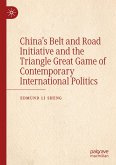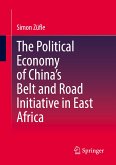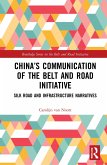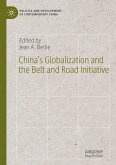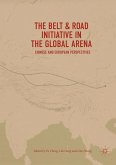This book endeavors to examine the impact of China's rapid ascendance as a donor on the "international development assistance regime" over the past two decades. China's rapid economic rise and the success of its economic development have led to a notable trend among many developing countries to view the way of China as a "Chinese development model" and to imitate it. In addition, China itself has been conscious of the "challenge" to the development theory and international development assistance regime that has been led mainly by the West and has pushed for policies that differ from those of traditional donors. The "Belt and Road Initiative (BRI)," which was announced in 2013, is emblematic of these distinctive developments in China. The proliferation of the "Chinese development model" in the context of these international trends has led some to view it as the global spread of the "Beijing Consensus," which has replaced the "Washington Consensus" led by the Bretton Woods Institutions that have exerted significant influence in the past.
This book presents case studies of several countries, based on the author's field research in Cambodia, Sri Lanka, Myanmar, Angola, Rwanda, and other countries.
This book presents case studies of several countries, based on the author's field research in Cambodia, Sri Lanka, Myanmar, Angola, Rwanda, and other countries.
Examining the Belt and Road Initiative: China s Impact on the International Development Assistance Regime is a landmark study that offers concrete insights into contemporary global developments in the international arena. The book is highly recommended for university departments of History and International Relations, development institutes, policymaking institutions and non-state actors globally. The book is essential reading for everyone. (Olawale Yemisi, Westsächsische Hochschule Zwickau - Ostasien-Zentrum, ostasien-zwickau.de, September, 2025)



